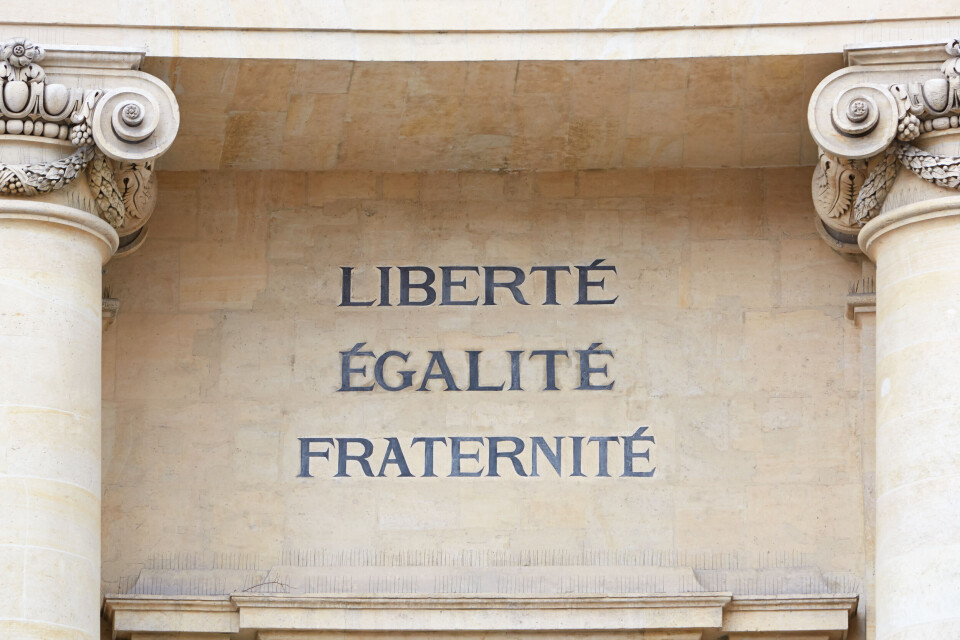-
A French film recommendation for spring
A Tale of Springtime directed by Eric Rohmer depicts a blooming, bittersweet romance
-
Trump tariff rises: which American items will be worst hit and when?
Three rounds of escalating tariffs will impact €22 billion worth of US goods
-
Ballet lessons bring health benefits to over-55s in France
Online classes with the Silver Swans are transforming lives of older adults
‘France is no left-wing country - it is time to let go of that myth’
A controversial new film about the French Revolution shows the persistence of right-wing ideas in France, says historian

“Vive la République, vive la France!”
Those words have become such a mantra that you could be forgiven for thinking the sentiment is universal.
Debates surrounding the recently-released film Vaincre ou Mourir suggest otherwise.
Focusing on Charette, a leader of the Vendée uprising following the French Revolution, it has been accused of glorifying the royalist revolt.
That, after all, is the raison d’être of Puy du Fou, the theme-park-turned-film-studio behind the picture.
Read more: Controversy as French theme park allows 9,000 visitors
As if the Revolution did not happen
For Emile Chabal, reader in history at the University of Edinburgh, the idea that France is somehow inherently left-wing needs to be laid to rest – and Puy du Fou is a perfect example.
Located in Vendée, it is the second most popular theme park in France, after Disneyland Paris, with 2.3 million visitors per year.
It was created in 1989 by Philippe de Villiers, a former MP, long-standing figure of the far-right, and a recent vocal supporter of Eric Zemmour.
“He has built a story about France as if the Revolution didn’t happen, or as if it was the worst thing that ever happened to France,” Dr Chabal said.
Visitors come for the historical re-enactments, from Clovis, the first king of the Franks, to the Viking invasion – but these are heavily fictionalised.
Rewrite French history for political attention
Last year, four historians published the book Le Puy du Faux after spending three days immersed in the park.
They describe a nationalist retelling of history, full of factual errors, which paints the Gaulois as defenders of Christian tradition in the face of Roman pagans, and the people of the Vendée as victims of genocide.
“The first thing you do when you want to get attention in French politics is you rewrite French history,” Dr Chabal said.
He suggests de Villiers turned to the cultural sphere as a way of “normalising” his nostalgic vision of France in a society which had little interest in monarchy.
Vendée was the natural location for the project, as the site of several uprisings led by peasants and Catholic royalists between 1793 and 1796, in which tens of thousands were killed.
Revolutions followed by conservative consolidation
The political notions of ‘left’ and ‘right’ can be traced back to this period: following the Revolution, the National Assembly was divided into those who wanted to give more powers to the king, sitting to the right of the president, and those who wanted a complete break with the monarchy to the left.
“What is the European right about?” Dr Chabal asked. “It’s about turning back the French Revolution.
“Turning back the rationalist, progressive vision of society and human nature that was explicit in the revolutionary project.”
The Revolution can also be seen as the moment clichés around France being a left-wing country began, but French history is anything but linear.
“If you look at the outcomes of each of the great revolutions – 1789, 1848, the Paris Commune – they are all followed by extended periods of conservative consolidation.
“After 1789, you get Napoleon. After 1848, you immediately get the French voting for another Napoleon.”
Read more: Five French civil wars - from Charlemagne to the Paris Commune
Deep fear of social collapse
A fear of disorder and social collapse has been a defining feature of French politics since the Revolution, allowing politicians from the right to promise stability, Dr Chabal said, citing Napoleon Bonaparte, but also Charles de Gaulle’s return to power in 1958 amid the crisis in Algeria.
“There is quite a deep fear of social collapse, of unrest, of violence, and that provides a powerful tool for right-wing political movements and figures.
“The largest protests of 1968 numerically were those in support of de Gaulle.”
Overwhelming majority of governments have been conservative
Another reason for the stereotype of France as a left-wing country is the prominence of intellectuals from Jean-Paul Sartre to Thomas Piketty, and the symbolic importance of moments such as the Paris Commune and May 1968.
Yet similar claims could be made on the right, from the influence of thinkers such as Charles Maurras to the ‘Great Replacement’ theory, which originated in France before crossing the Atlantic.
Read more: ‘Is French President Macron right or left-wing? It depends’
“Taking a long-term perspective, there is a strong case for people looking to France as the home of conservative and reactionary politics.
“There is a continuity in this very right-wing intellectual culture. If you listen to Zemmour, he really does see himself in the great tradition of the Catholic reactionary right.”
Nor does the cultural prominence of left-wing ideas necessarily translate to political influence, Dr Chabal added.
“The overwhelming majority of governments, certainly from the Third Republic onwards, have been conservative in political orientation.”
The Revolution is not the only battleground when it comes to identity.
“Another area in which you see the rehabilitation of a right-wing story of France is in the defence of France’s imperial and colonial conquests.”
Related articles
How the Revolution gave France a head for heritage conservation
‘The young feel they’ve been voting for politicians who don’t change’
Elections, pension reform, defence: French politics in 2023
























